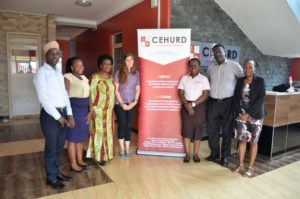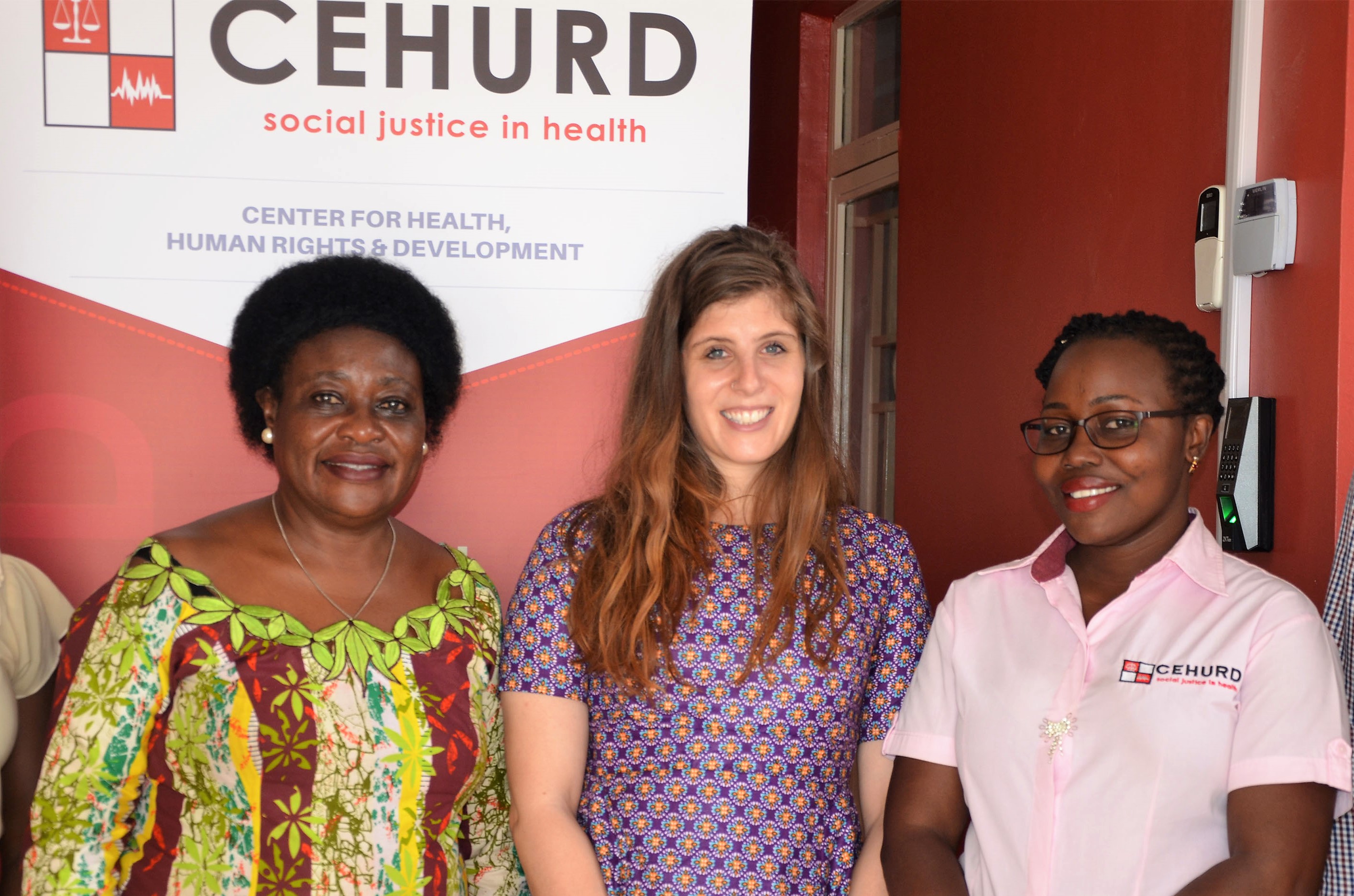By Ms. Nakibuuka Noor Musisi
 Today CEHURD was pleased to work with but also host officials from Ministry of Health and WHO country office to deliberate on the finalization and road map of the gender and human rights mainstreaming manual for health professionals.
Today CEHURD was pleased to work with but also host officials from Ministry of Health and WHO country office to deliberate on the finalization and road map of the gender and human rights mainstreaming manual for health professionals.
This manual stems from the fact that the Uganda Gender Policy 2007 calls upon all sectors to mainstream gender in their respective sector plans and interventions. As a way of trying o implement this policy, the Ministry of Health and Who country office together with development partners came together to develop this manual aimed at building the capacity of health sector staff to mainstream gender and human rights into health service delivery. In addition, the manual is also responsive o the Country’s Public Finance Management Act, 2015, which reinforces the need for health workers to be more responsive to gender and human rights.
It’s also not in contention that there is a knowledge and practice gap between duty bearers and rights-holders in health service delivery that leads to limited service delivery and the violation of human rights, including the right to the highest attainable standard of physical and mental health. Worse still there has been limited attention given to gender issues in the health sector which has led to iniquities in accessing health services and interventions that are not gender-responsive. This manual therefore is designed to empower the duty-bearers and rights-holders with knowledge and skills to appreciate the importance of mainstreaming human rights and gender in health.
One would think that partners have no stake in this process but the reverse is true. Over the years, I have come to believe that bringing technical expertise from various areas to one room makes more sense than having individual organizations work on specific processes. Of course, we are development partners in the health sector and hence our intervention and input into policies and processes is fundamental. Working with the Ministry, WHO and other civil society organizations has proved to me that partnerships are critical in moving processes. As we speak, the Gender and human rights manual has rather taken progressive steps, been approved by the Senior Management team within the Ministry of Health, as well as the Health Policy Advisory Committee and will be up for discussion at the Top management level.
It’s not surprising that even at this level, partners have come together to discuss the road map. With a question, what next after top management approves? This is where synergizing becomes key. We have planned and agreed on a road map that will ensure that at various levels (both national and district), the manual is not only shared, but health service providers and District officials,, policy makers among other are sensitized on how best to use this manual for impact. It’s anticipated that these are key in not just providing services but also coming up with human right and gender responsive policies, by laws and Ordinances among others.

